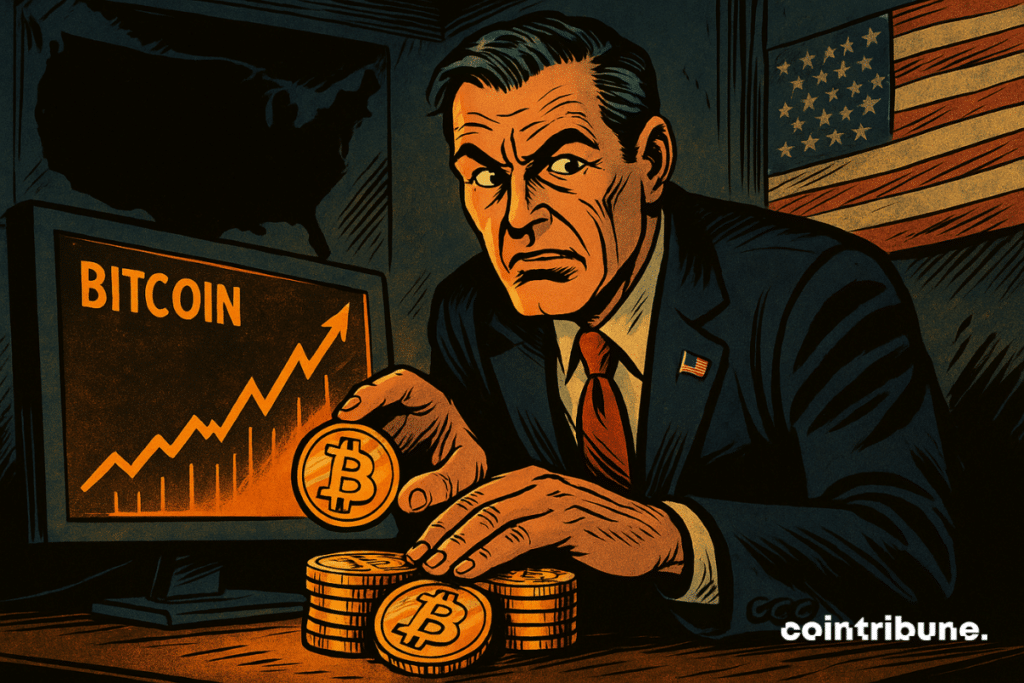BREAKING: The U.S. Is Quietly Stacking Bitcoin Reserves—Here’s Why It Matters
The world's largest economy just made its biggest crypto power play yet.
While Wall Street still debates Bitcoin's legitimacy, Uncle Sam isn't waiting around. Recent blockchain sleuthing reveals the U.S. government has been accumulating BTC through seizures and strategic purchases—creating what analysts call a 'shadow reserve' that could reshape global finance.
From Silk Road to Sovereign Balance Sheets
Remember when the DOJ auctioned 30,000 BTC from the Silk Road bust? Turns out those sales were just the beginning. Insiders suggest Treasury wallets now hold over 200,000 BTC—worth roughly $13 billion at current prices.
The New Gold Standard?
With the dollar's dominance waning, America appears to be hedging with digital gold. 'They're playing chess while everyone else plays checkers,' remarks a former Fed official who requested anonymity. 'Every confiscated darknet coin becomes a strategic asset.'
Meanwhile, traditional banks—still charging 2% fees for international transfers—are left watching as the government quietly adopts the technology they spent years lobbying against. The irony? Priceless.

In brief
- The United States is secretly accumulating bitcoin through seizures and unused funds.
- A strategic reserve is in the process of being created, at no cost to the taxpayer
- The government sees bitcoin as a key economic sovereignty asset.
A digital treasure forged in the shadows
Bo Hines did not mince his words. Under the impetus of a presidential decree signed on March 6 by Donald Trump, federal agencies were ordered to account for all seized, forgotten, or unused bitcoins. Result: a reserve under construction, fueled by ten years of criminal confiscations, civil fines, and unspent budgets. These are not just a few misplaced fragments of Satoshi: it is a silently consolidated digital windfall.
What strikes is the opaque architecture of this operation. The full audit is not intended to be made public, unless there is a contrary political will.
The message is clear: the US government now considers bitcoin as a digital equivalent of gold. A strategic resource to be secured. And above all, not to be left in the hands of geopolitical adversaries, such as China or Russia, which wants to reserve bitcoin for the wealthy.
Budget neutrality or political alchemy?
What makes this initiative even more unique is the promise of budget neutrality. In other words: not one cent of taxpayer money should fund the bitcoin accumulation.
It is an almost esoteric challenge, and yet Hines displays unwavering optimism: “We have very creative minds”, he says, looking at Senators Lummis and Scott, drivers of this ambitious maneuver.
This is where the GENIUS (stablecoins) and CLARITY (market structure) bills come into play. Even before legalizing new federal bitcoin purchases, Congress first wants to frame the environment in which these assets operate.
We are talking about regulations, certainly, but above all a legal infrastructure that legitimizes the next step: making bitcoin a fully recognized state asset. At this pace, we could very well see a national BTC wallet on par with Fort Knox Gold reserves.
Towards an American Bitcoin standard?
Behind this strategy, there is more than just a bet on a speculative asset. There is a will for digital monetary sovereignty. By calling bitcoin digital gold, the TRUMP administration signals a clear ideological line: to guard against inflation, geopolitical instability, and loss of dollar influence.
The timing is no coincidence: at the dawn of a presidential election, with the BRICS accelerating their dedollarization, bitcoin becomes a soft power instrument.
If the United States continues down this path, a crucial question arises: how far will they go? Will they aim for domination of the hashrate? Will they adopt a sovereign mining policy? Or will we witness the emergence of an American-style bitcoin standard, camouflaged behind budget laws and classified audits? The game is just beginning.
July, with the potential signing of the GENIUS law, could mark a historic turning point. And in the muffled silence of institutions, bitcoin is gradually asserting itself as a key piece on the great geopolitical chessboard. This time, it is no longer an insiders’ game. It is a national strategy.
Maximize your Cointribune experience with our "Read to Earn" program! For every article you read, earn points and access exclusive rewards. Sign up now and start earning benefits.

